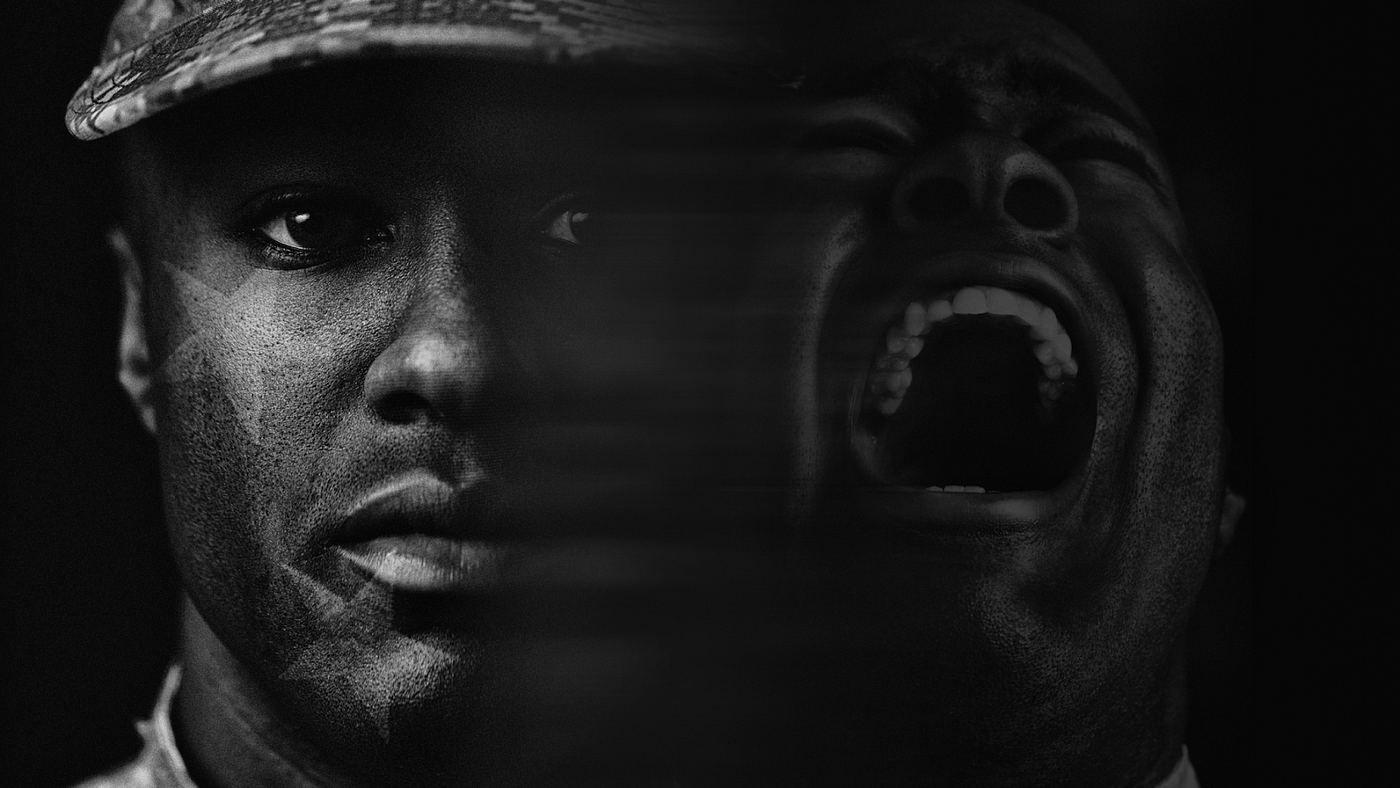More than 30% of Nigerian men struggle with mental health issues, yet less than 50% seek the necessary treatment. This alarming statistic highlights a significant gap in mental health care for men in Nigeria.
African cultures often stigmatize mental health, making it difficult for men to seek help. This can have severe consequences, as men struggling with mental health issues may isolate themselves and avoid treatment.
In this article, we will explore the biggest mental health problems in men, their symptoms, and effective coping strategies.
Let’s delve into the issue and break down the stigma surrounding mental health.

Biggest Mental Health Problems in Men: How to identify their early signs
It is essential to know the warning signs of mental health problems to get help as early as possible. Men are different, and their symptoms are not always noticeable, so it is hard to notice that they need help.
Here are a few things to look out for:
1. Emotional Changes
Men often experience a range of intense emotions, including anger, irritability, and aggression. These sudden shifts in mood can be indicative of underlying mental health issues.
For example, a young Nigerian man who finds himself easily angered by family, friends, or acquaintances may be struggling with depression or anxiety. It’s important to recognize these emotional changes and seek help if needed.
2. Physical Symptoms
Many psychological problems have physical manifestations. Headaches, muscle tension, and upset stomachs are common signs of anxiety or stress.
While these symptoms might be dismissed as normal reactions to life’s challenges in some African cultures, they can also indicate underlying mental health issues. It’s important to recognize these physical signs and seek help if necessary.

3. Behavioral Shifts
Pay attention to changes in behavior, such as social withdrawal, loss of interest in activities, or sudden shifts in risky behaviors like substance abuse.
If a man who once enjoyed social gatherings or family events starts withdrawing from these activities, it could be a sign of underlying depression or anxiety.
4. Cognitive Difficulties
Some symptoms likely to be observed in men include poor concentration, memory impairment, and confusion. Cognitive problems may be somewhat vague, but they suggest an underlying mental disorder.
What are these Biggest Mental Health problems in Men?

Men also suffer from mental health problems but in different patterns as compared to women and in other forms that are not easily recognizable.
In this section, we present the most severe mental health problems in men and how these problems affect men’s lives.
1. Depression
Depression is a prevalent mental health problem in men, and yet it remains undiagnosed in most of the cases.
In Nigeria, there are cultural and traditional expectations that portray men as strong and capable of handling pressure, challenges, and hardships without showing any form of weakness; this cultural barrier makes it difficult for men to report cases of depression.
While women may cry and show sadness, me may become easily irritated, angry, or aggressive when they are depressed. A WHO study found that more than a quarter of men in Africa suffer from depression, but most of them do not seek treatment because of the stigma and ignorance.
2. Anxiety Disorders
Anxiety disorders are characterized by excessive worry and fear that can significantly interfere with daily life.
A publication released by MedicalNewsToday on men’s mental health, stated that while women are more likely to be diagnosed, anxiety disorders are equally common among men. However, men are less likely to seek treatment.
Anxiety disorders is one of the top mental health problems affecting millions of men in Nigeria, and by extension, Africa.
The Anxiety and Depression Association of America points out that anxiety disorders are the most prevalent mental health disorders, which affect 28 percent of adults at some point in their lifetime.
Common types of anxiety disorders include:
- Generalized anxiety disorder (GAD): Persistent and excessive worry about everyday things.
- Social anxiety disorder: Intense fear and anxiety in social situations.
- Obsessive-compulsive disorder (OCD): Recurrent thoughts or behaviors that cause distress or interfere with daily life.
3. Substance Abuse
Mental health challenges often lead to self-medication, with alcohol and drugs becoming a coping mechanism for many. In Nigeria, the normalization of excessive alcohol consumption through phrases like “chop life before life chops you” can contribute to a culture of substance abuse.
According to the Nigerian Institute of Medical Research (NIMR), a staggering 40% of Nigerian men who consume alcohol are binge drinkers. This excessive alcohol consumption poses significant risks to both mental and physical health.
Consequences of Substance Abuse
- Addiction: Chronic substance abuse can lead to addiction, making it difficult to quit and impacting various aspects of life.
- Financial Loss: Substance abuse can drain finances through excessive spending, lost productivity, and legal issues.
- Health Problems: Long-term substance abuse increases the risk of chronic diseases, including liver damage, heart disease, and cancer.
- Relationship Breakdown: Substance abuse can strain relationships with family and friends, leading to isolation and loneliness.
4. Post-Traumatic Stress Disorder (PTSD)
Post-Traumatic Stress Disorder (PTSD) is a mental health condition that affects individuals who have experienced or witnessed traumatic events. While often associated with soldiers, PTSD can occur in anyone who has undergone a traumatic experience.
In Nigeria, where conflict and communal strife are prevalent, many men live with PTSD without realizing it. Symptoms like flashbacks, nightmares, and severe anxiety are often overlooked or dismissed, leading to a life sentence of suffering.
It’s crucial to recognize the signs of PTSD and seek help. By acknowledging and addressing this condition, individuals can break free from the chains of trauma and reclaim their lives.

5. Suicide
Suicide rates in Nigeria are alarmingly high, particularly among men. The data reveals a stark gender disparity, with men significantly more likely to take their own lives than women.
Underlying Factors
Several factors contribute to this crisis:
-
Lack of Mental Health Treatment:
Many individuals suffering from mental health conditions like depression and anxiety do not receive the necessary treatment.
-
Overwhelming Stress:
The pressures of life, coupled with limited coping mechanisms, can lead to unbearable stress and despair.
-
Societal Expectations:
The cultural expectation for men to be strong and independent can prevent them from seeking help, exacerbating mental health issues.
According to the World Health Organization (WHO), suicide is the second leading cause of death among young people aged 15-29 worldwide. Men in this age group are three times more likely to commit suicide than women.
6. Anger Management Issues
Everyone gets angry at one time or another, but when the anger is out of proportion, it results in bitterness. Boys, in particular, are brought up not to show any emotions, and when they get angry, the outcome is explosive.
In African societies, especially where the male is expected to take up the role of the breadwinner, anger issues often result in domestic violence, family breakdowns, and legal problems.
A man who loses his temper quickly and uses forceful means to deal with problems he encounters may have some psychological disorders that need treatment.
7. Loneliness
Many men, especially those living in urban areas away from their families, struggle with depression. This often goes unrecognized due to societal pressures for men to be strong and independent.
However, loneliness can be as harmful to your health as smoking fifteen cigarettes daily. It’s a serious issue that can lead to depression and other mental health problems.
Men in crowded cities like Lagos and Abuja are particularly vulnerable to the negative effects of loneliness.
Practical Tips to combat mental Health problems in men

Men’s mental health issues cannot be treated as separate from their physical health. Here are seven practical tips to help men manage their mental health:
-
Talk About It
Share with someone you know and trust or a professional. Sometimes, it is good to let someone know how you feel; this may be the first step towards recovery.
-
Seek Professional Help
Just as you would consult a doctor for physical ailments, it’s equally important to seek help from a mental health professional when facing emotional challenges. Counseling, therapy, or medication can be invaluable tools in addressing mental health issues.
Remember, seeking help is a sign of strength, not weakness. It’s time to break down the stigma surrounding mental health and prioritize your well-being. Don’t hesitate to reach out to a qualified professional for support and guidance.

-
Engage in Physical Activity
Exercise is one of the most effective strategies for improving mental health. From football to jogging to dancing your best Afrobeats, physical activities are known to have a positive impact, especially on patients with depression and anxiety.
-
Build a Support Network
Surround yourself with supportive individuals who can listen to you and understand your challenges. Connect with friends, family, or join community groups to feel a sense of belonging and receive encouragement during your recovery journey.

-
Limit Alcohol and Substance Use
Even though it is possible to turn to alcohol or drugs to make a person feel better, it is essential to know that these substances only worsen mental health conditions. It is necessary to discover other ways to deal with stress that are not as dangerous to one’s health.
-
Educate Yourself
The more you know, the more you can control. Become familiar with common mental disorders and how to identify them in yourself and others. This can assist you in taking action before the situation becomes worse.

Conclusion
Mental health is a universal concern, affecting individuals of all genders. In African societies, the stigma surrounding mental health can be particularly harmful, preventing men from seeking the help they need.
It’s time to break the stigma.
If you or someone you know is struggling with mental health issues, don’t hesitate to seek professional help. Remember, you’re not alone, and there are resources available to support you on your journey to recovery.
Let’s work together to create a more understanding and supportive society for all.
__________________________
At Enthusiast Express, we recognize the specific mental health concerns that men face in African communities. Our mission is to empower you to take control of your well-being and break free from the stigma surrounding mental health.
Join Our Community
Become a part of our supportive community where men can find understanding, encouragement, and practical advice. Share your experiences, connect with others, and celebrate your victories together.
Take the First Step
Remember, seeking help is a sign of strength, not weakness. Join our forum today and start your journey towards improved mental health. Let’s break down the barriers and create a more supportive environment for men in Africa.

